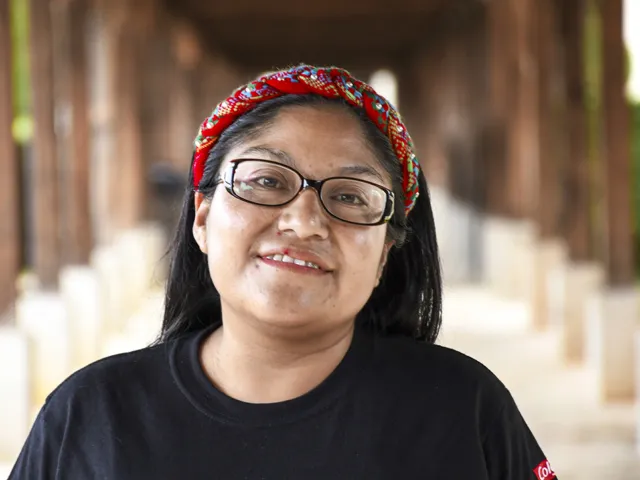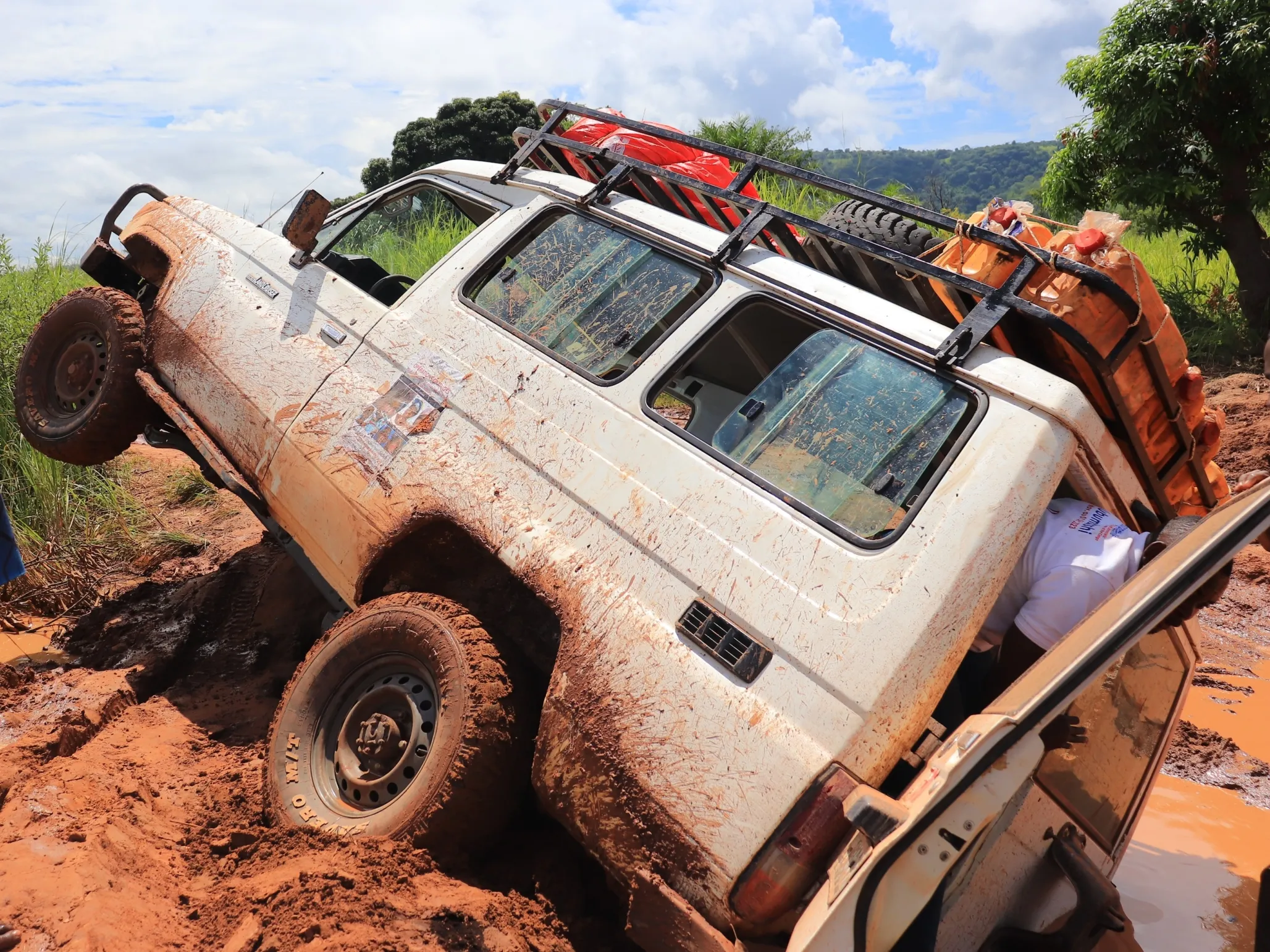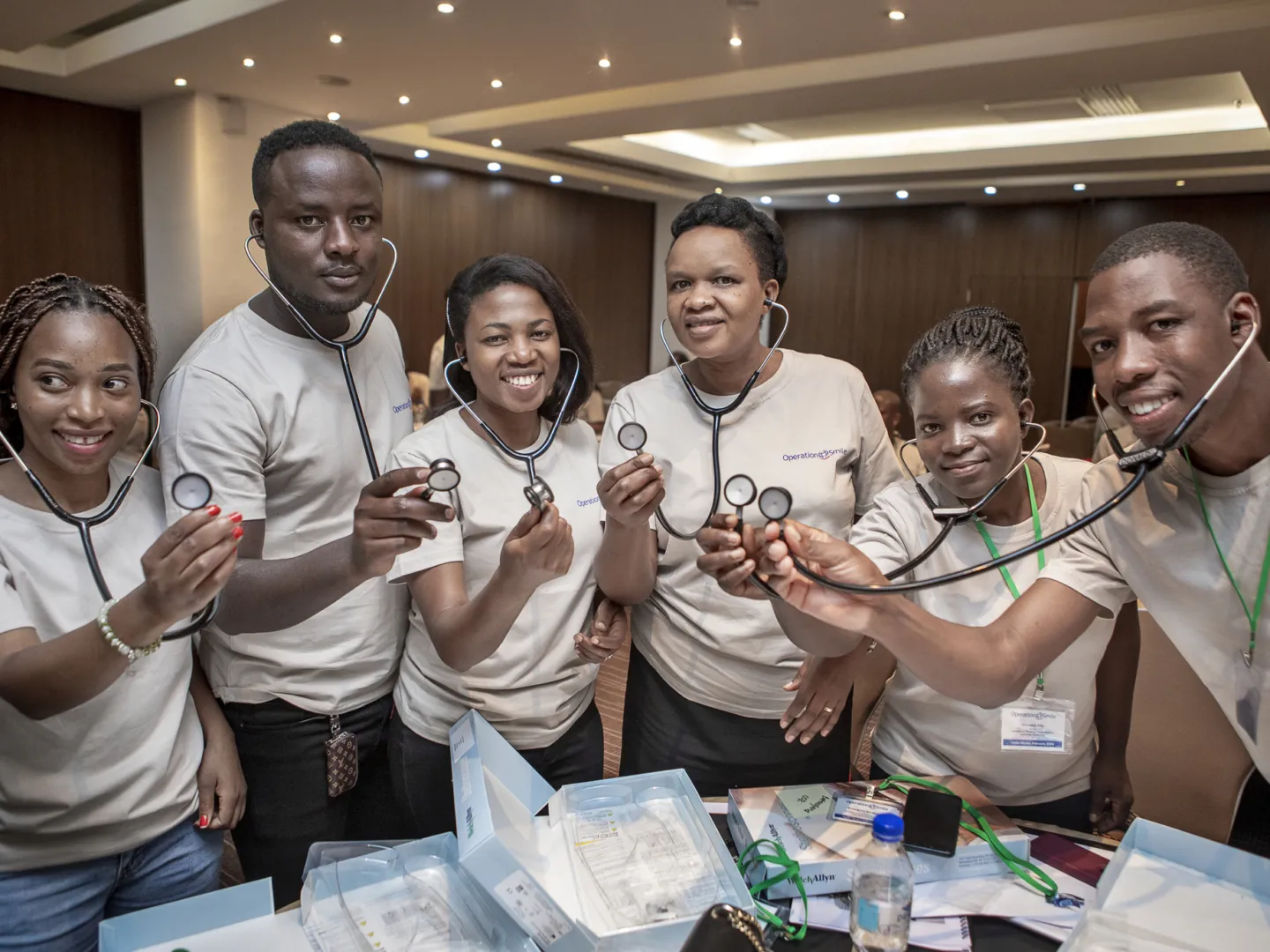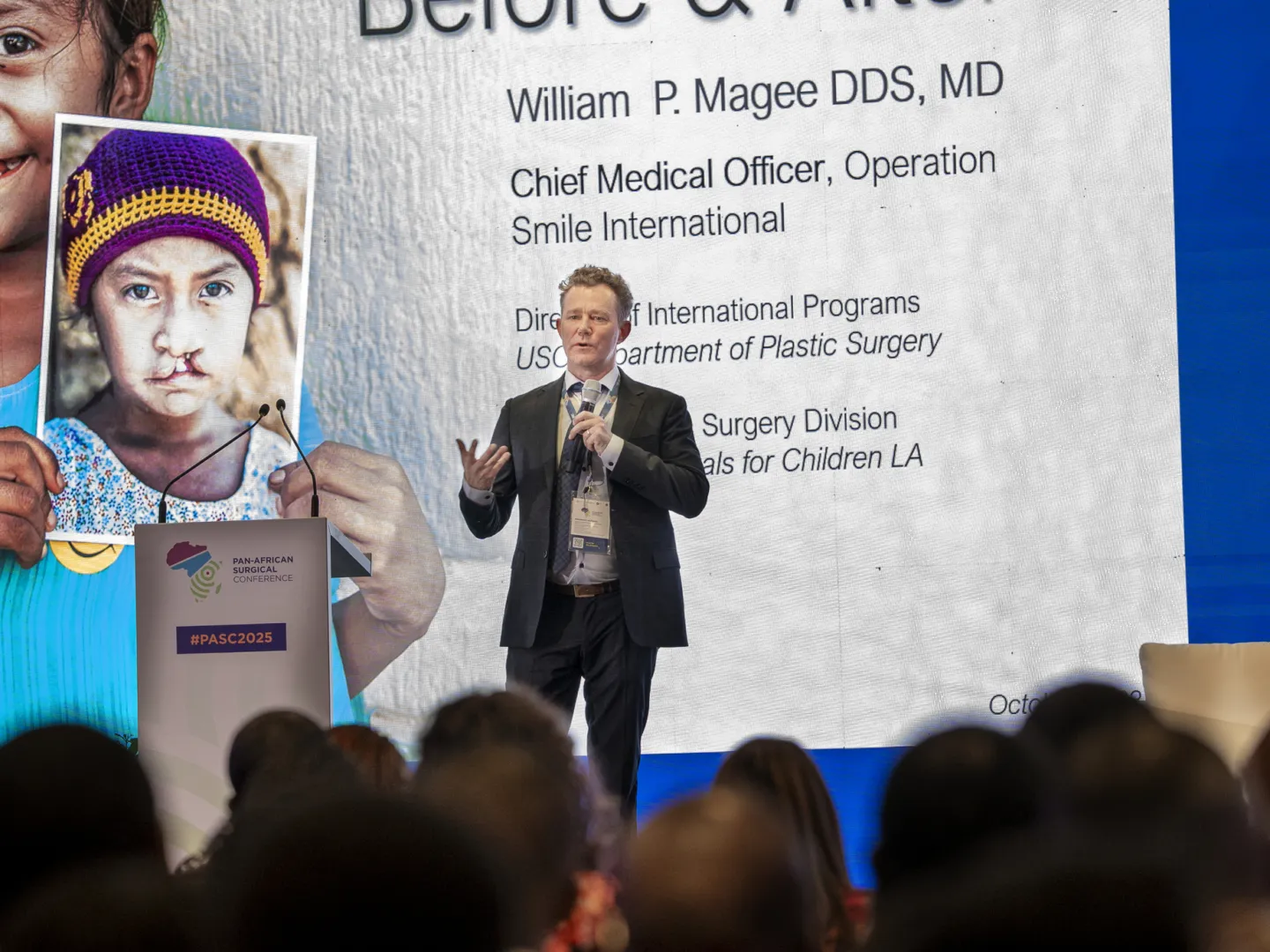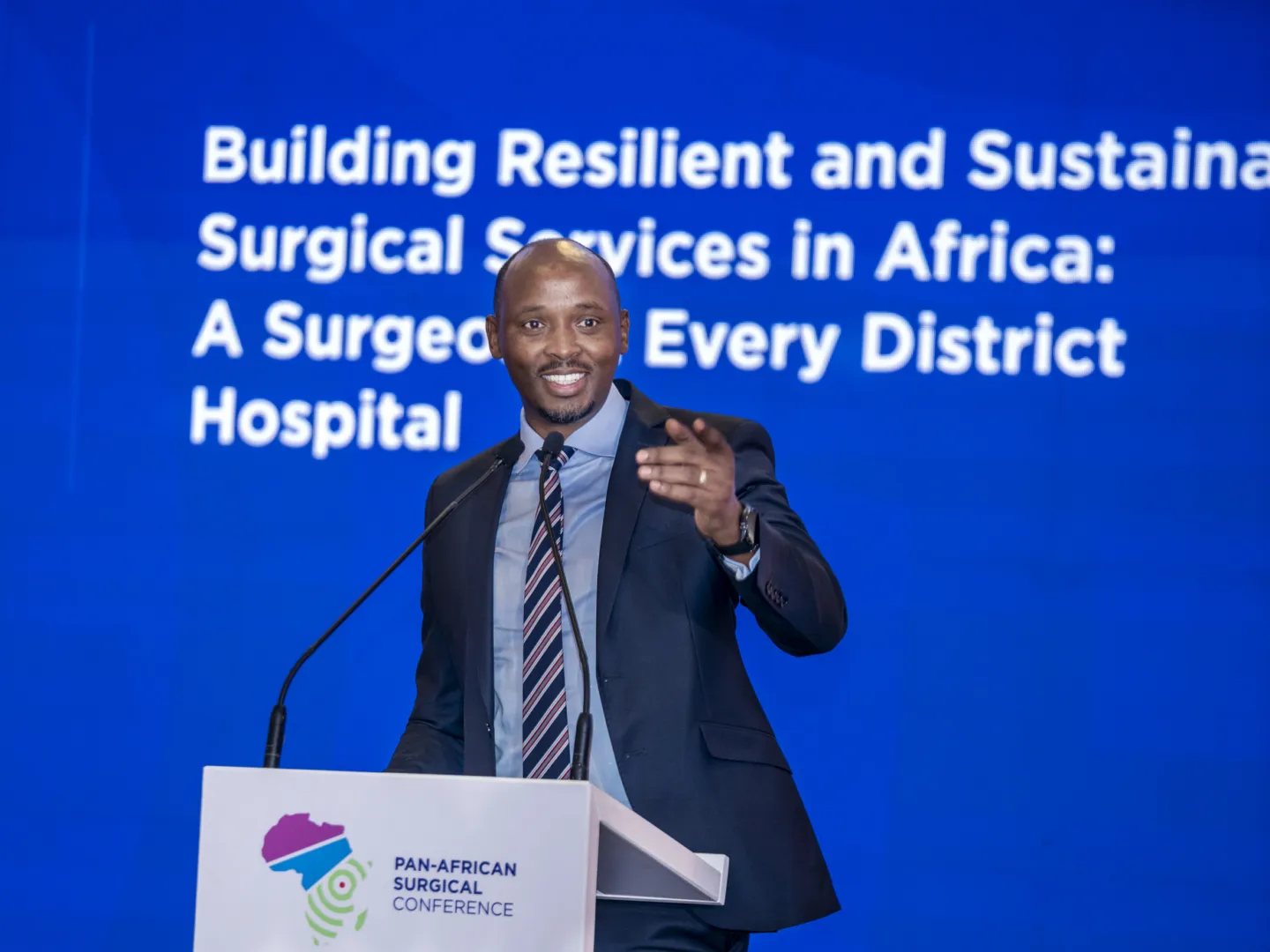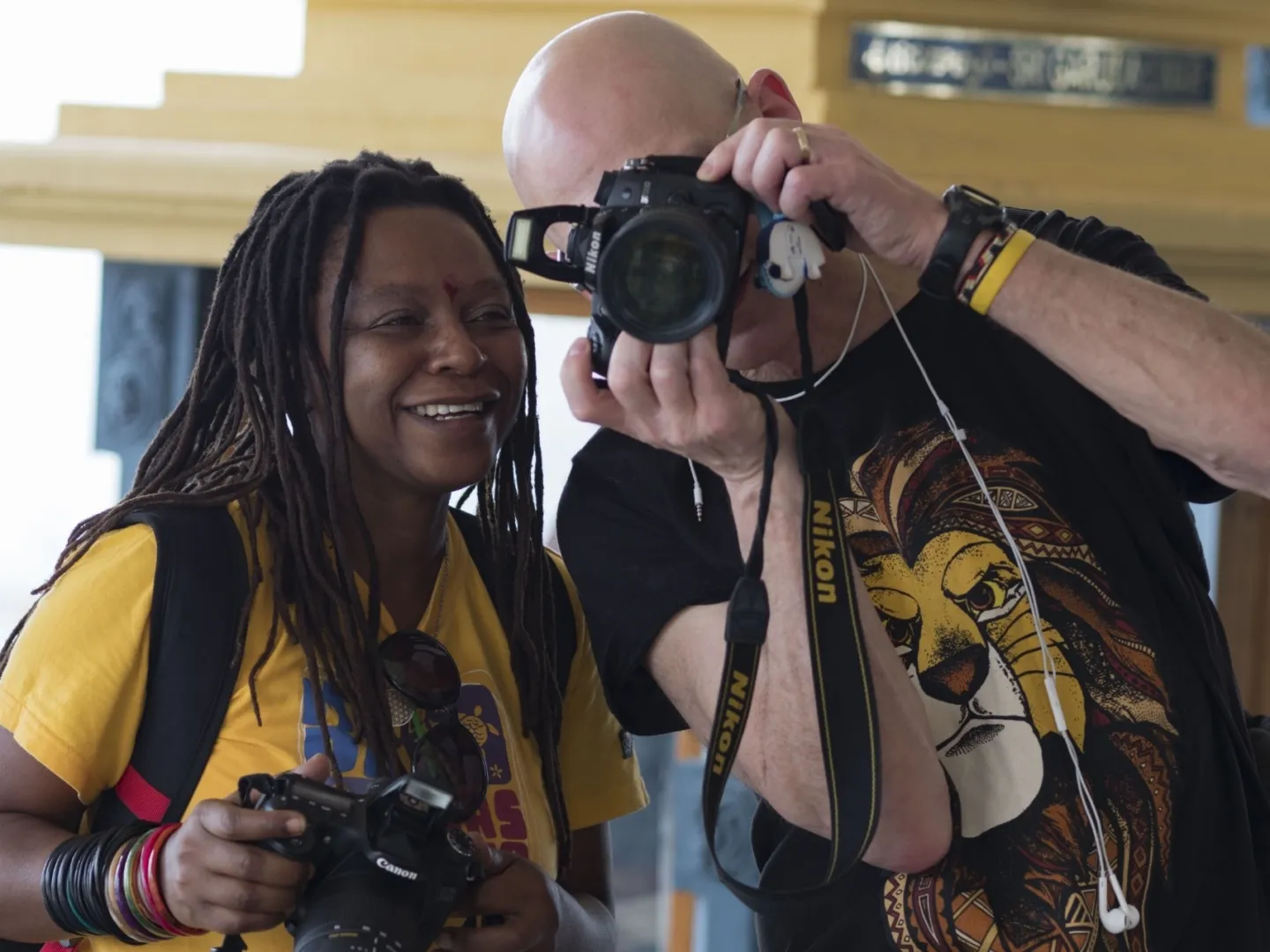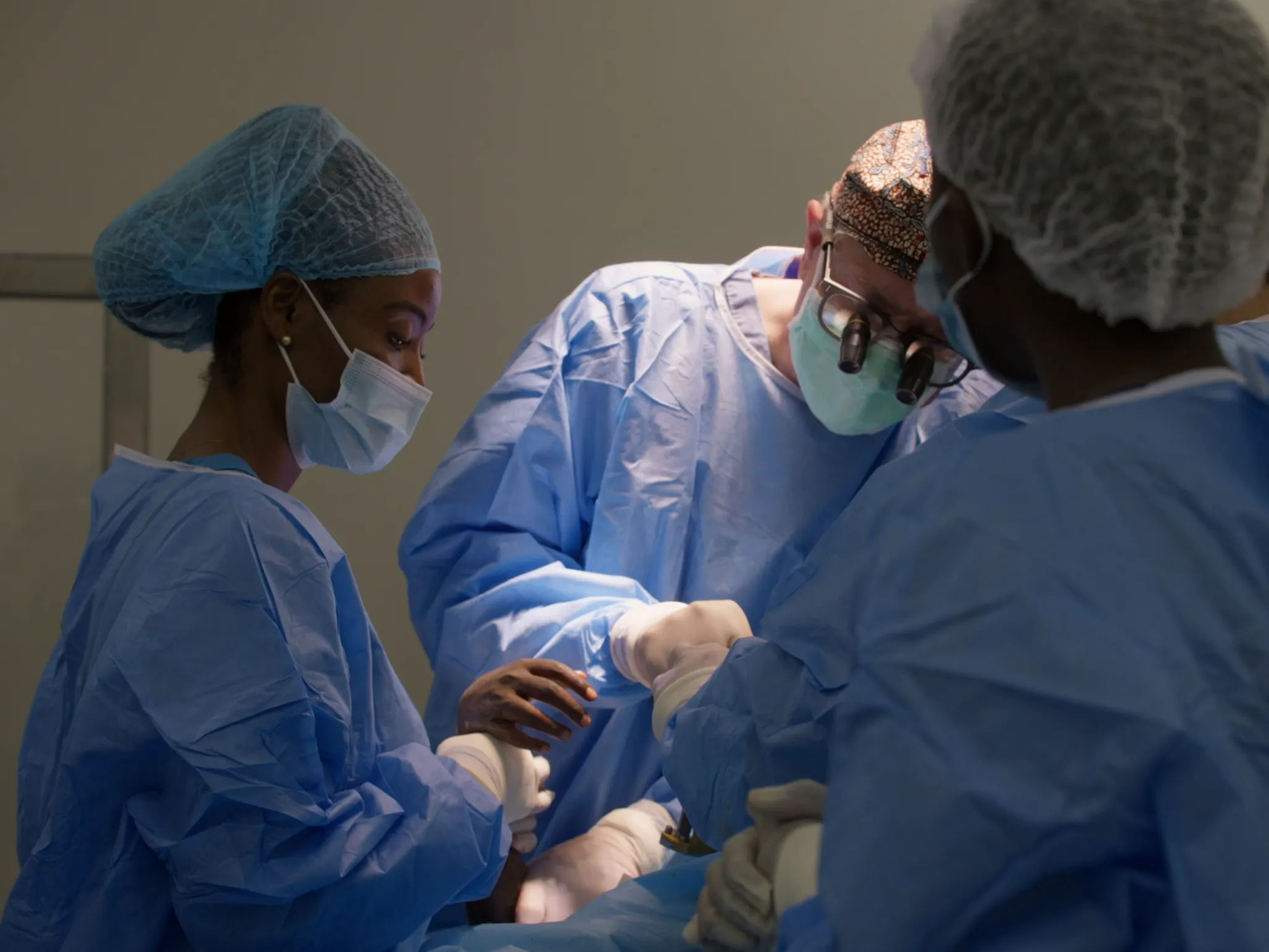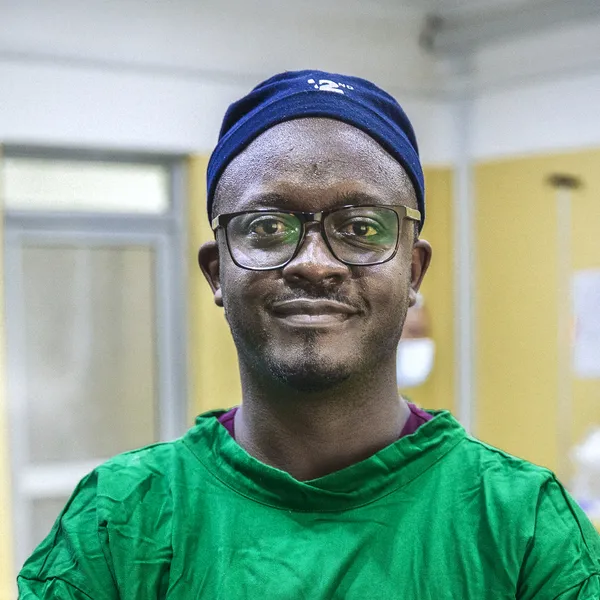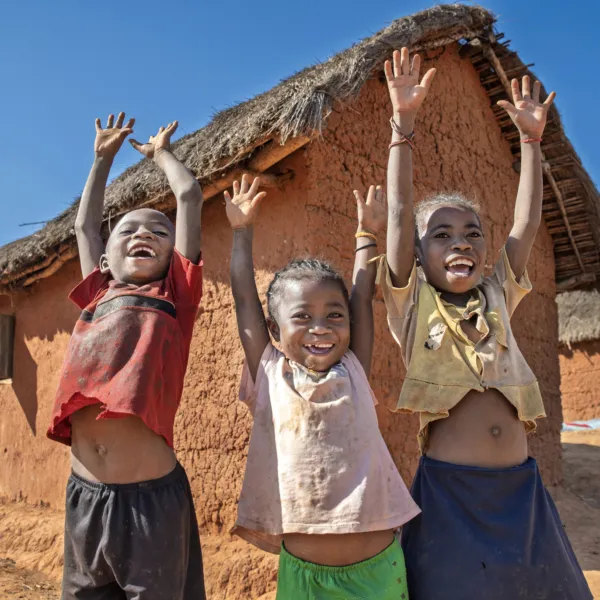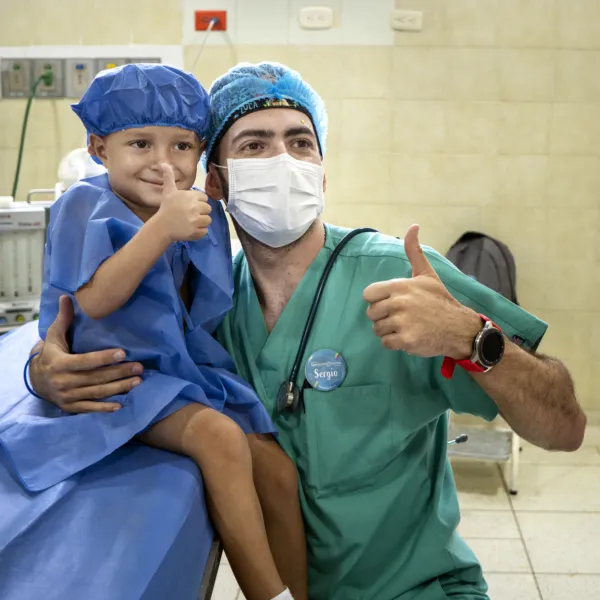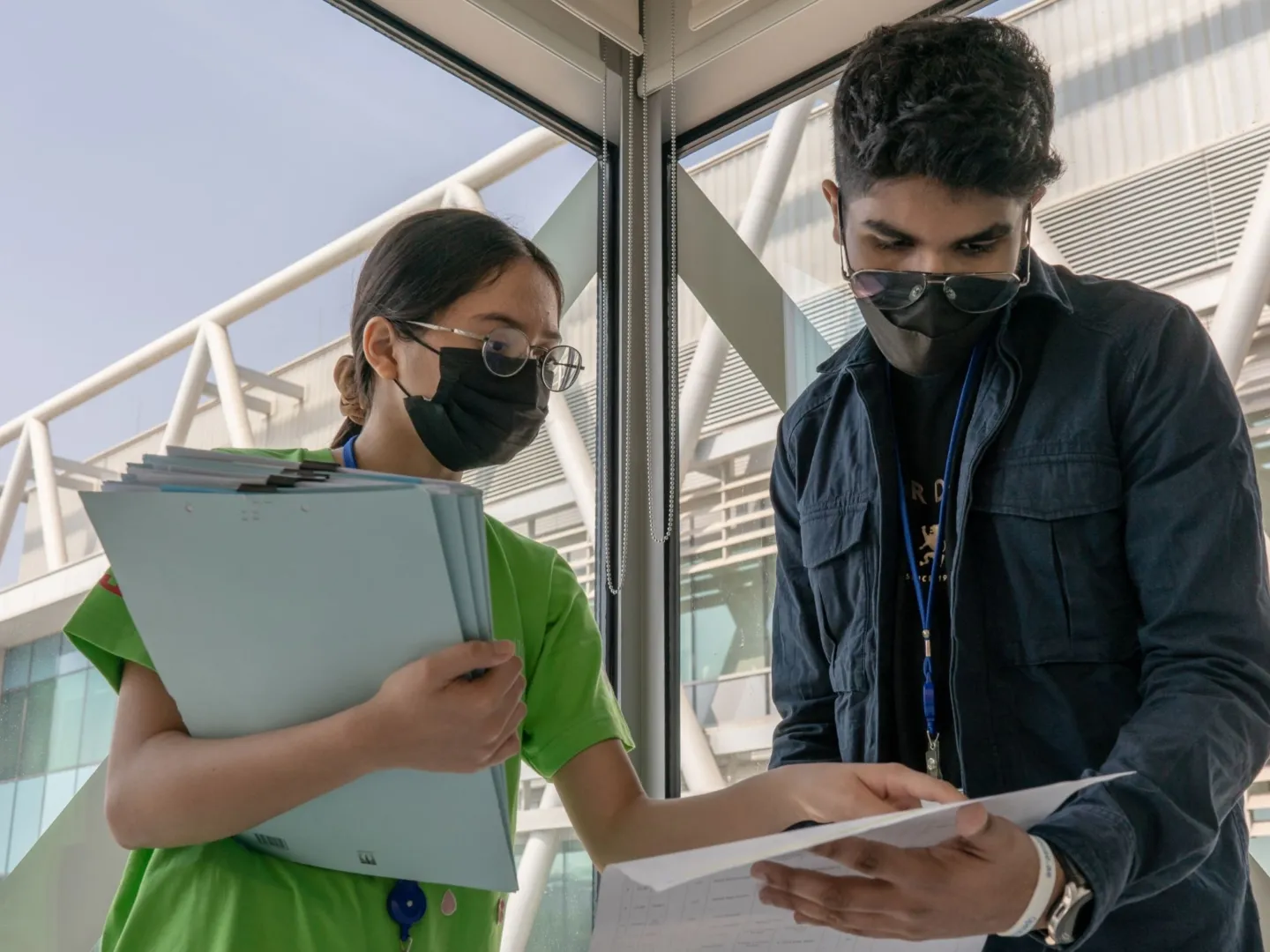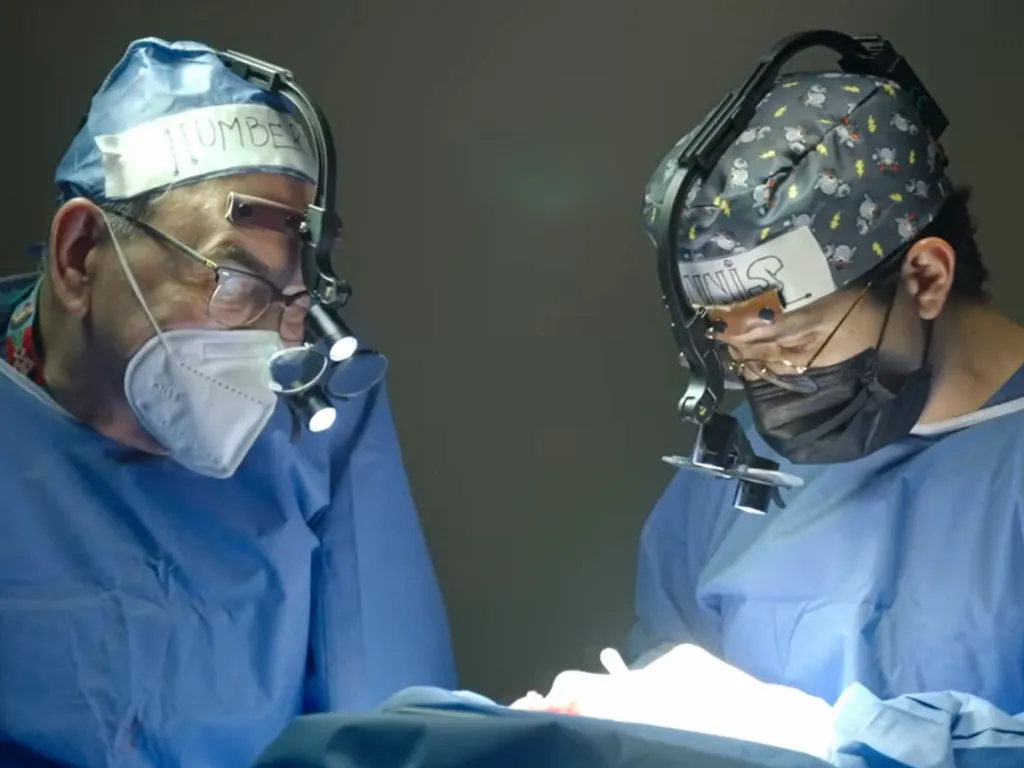Care Providers
Reflections of a Historic Journey
Few, if any, conflicts in United States history were as divisive as the Vietnam War.
Long after the last shots were fired, tension and mistrust between the U.S. and Vietnam lingered. As the political climate between the countries remained icy through the 1980s, a humanitarian countercurrent developed that would eventually play a critical role in the thawing of those relations.
Enter Operation Smile.
In 1988, Vietnam War veteran John Connor approached Operation Smile Co-Founder and CEO Dr. Bill Magee, a high school friend, about assisting Gen. John W. Vessey Jr. with the first American-led humanitarian program to post-war Vietnam. When Operation Smile’s 38-member volunteer medical team arrived in Hanoi in 1989, it represented the largest contingent of Americans to visit Vietnam since the end of the war. The goal was the same as every medical program before or since — to provide life-changing cleft lip and cleft palate surgeries to those who would otherwise be unable to access safe, well-timed surgical care.
One of the plastic surgeons on that groundbreaking program was Dr. Arthur Brown of Cooper Hospital in Camden, N.J. He returned to Hanoi for Operation Smile’s second medical program to Vietnam in 1990, and later that year led the inaugural medical program to Ho Chi Minh City.
As Arthur assembled his team of volunteers to travel to Ho Chi Minh City, one of his colleagues from Cooper Hospital, Susan Andrew (then Rintel), aspired to lend her professional skills as an administrator to the medical program. Susan was selected to volunteer, and has since reached out to Operation Smile to share her story and photographs of our third medical program to Vietnam — an experience that left a deep and lasting impression on her. Today, Susan has kept the spirit of volunteerism and charity close to her heart. In addition to volunteering at Cathedral Kitchen, serving meals to those in need in Camden, she also serves as a volunteer health care and education advocate in her community.
Q: As a young hospital administrator, you found out about Operation Smile’s inaugural medical program to Ho Chi Minh City, Vietnam and signed on to volunteer. How did you learn about Operation Smile’s work?
A: “I first learned about Operation Smile through Dr. Arthur Brown, the Head of the Division of Plastic Surgery at Cooper Hospital in Camden. He was also the Chairman of the Education and Research Committee of the Board of Trustees. I was a member of the committee and together, we worked on many hospital education and research issues. Dr. Brown had traveled on two prior medical [programs] with Operation Smile. When he described putting together an Operation Smile team for the inaugural medical [program] to Ho Chi Minh City, I knew I needed to be a part of this team.”
Q: How did you plan to apply your professional knowledge and experience to the medical program?
A: “I informed the Operation Smile team that I could manage, organize, coordinate logistics, troubleshoot and take care of any nonmedical or nonsurgical issues that would arise. Knowing that I would be working alongside a team of physicians, nurses, and other health care professionals to change lives, I was determined to become a member of this medical [program] to Ho Chi Minh City.”
Q: When you arrived in Vietnam, what were your impressions of the country and how did they compare to your expectations?
A: “We arrived in Ho Chi Minh City to the most exuberant welcome! I remember feeling like a celebrity, as we met with officials and translators who were anxiously awaiting our arrival. The local newspapers announced our medical [program] prior to our arrival — people in the streets knew who we were and why we were there. Once we arrived at the hospital, it was purely professional. We joined forces with hospital physicians, administrators, nurses and staff for our collective task. I had very little expectation prior to arrival, so I embraced each and every aspect of the days ahead.”
Q: What was it like to be a part of the medical program and what did you perceive to be its biggest challenge?
A: “Our team shared a deep common bond from the experience and respect for the jobs we were responsible for. Every person had a distinct role on our team, and we all needed each other in order for our medical [program] to work safely, efficiently and most successfully.
“The greatest challenge was not being able to take care of every patient who arrived for screening. For me, it was heartbreaking to communicate to a family member that their child was not chosen for surgery, whether it be because of a health hazard discovered during patient health screenings or due to our surgery caseload reaching its maximum capacity. Clearly, that was the most significant challenge of my entire experience. It warms my heart to know that Operation Smile has been able to return and expand its work in Vietnam in the years since those early medical [programs].”
Q: Was there a particular moment when you realized the profound impact of cleft surgeries to the patients and their families?
A: “We came to know many of the patients and their families during our short time in Ho Chi Minh City. Seeing the reaction of the mothers and fathers looking at their child post-surgery is an image I will always remember. Upon my return home, I received many letters from those families — this trip was prior to social media, so we wrote letters back and forth. One letter in particular was sent six weeks after I arrived home. The father wrote about the happiness the family felt when his son returned home, and that they were all weeping for joy. I still cry when I read that letter.”
Q: Describe the program’s impact on you and how it changed your world view.
A: “Working with Operation Smile as a young professional and participating in this experience solidified my dedication and passion as a health care professional and as a lifelong volunteer. With the knowledge I gained through education, experience and life; giving back became an intrinsic part of the person I am today. Through my Operation Smile experience, I realized that no matter where I am in life, I can always give of myself to others with my skills, passion, time and willingness. I can participate as part of a team or as an individual. I can always contribute, in some way, to improve the life of someone in need. I imagine the children, now adults, that we took care and how our efforts enhanced their lives.”
Editor’s Note: During the process of curating this article, Gen. John W. Vessey Jr. passed away on Thursday, August 18, 2016. He is survived by his wife, Sarah, and his two sons, John III and David.
“It is indeed a very sad and reflective moment for me hearing that Gen. Vessey has passed away,” said Dr. Bill Magee, Operation Smile Co-Founder and CEO. “The chance encounter between John Conner and I at our 25th high school reunion at Fordham Prep led to an incredible relationship with Gen. Vessey and ultimately Vietnam. His influence had far-reaching effects for our country and for what can be done to create relationships around our world.”
